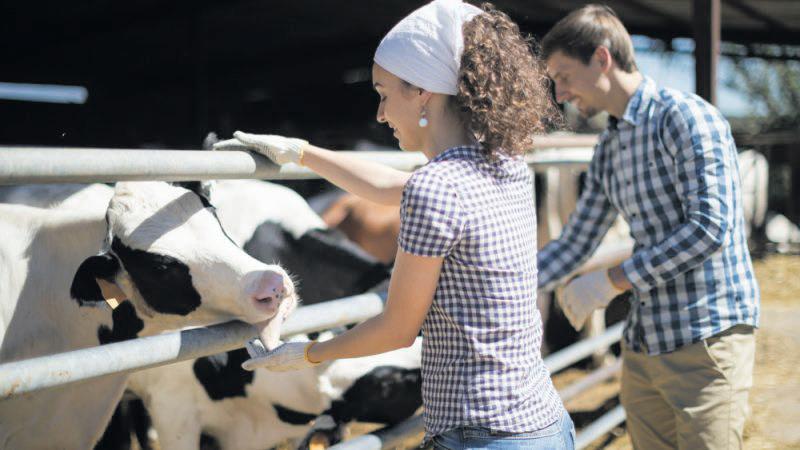
2 minute read
FEDERAL BUDGET “FALLS SHORT” FOR FARMERS AND REGIONAL NSW
NSW Farmers’ Association is disappointed the federal government has missed key opportunities in the federal budget to strengthen Australian agriculture and rural communities.
President of NSW Farmers Xavier Martin said the federal budget has “fallen short” of expectations, particularly around the signifcant biosecurity threats Australian farmers face.
“At frst glance, $1 billion in extra funding to strengthen biosecurity measures sounds great, however, it’s farmers that are being told to pay for it with a new ‘biosecurity protection levy’.
“Biosecurity is a signifcant threat on many levels, not just for agriculture, but for the Australian economy in general. It’s risk creators, the people exposing our country to deadly diseases and pests, that should be bearing the brunt of the cost, not farmers who are growing our food and fbre. Sure, importers will be paying slightly more but quite frankly, it’s not enough.”
Other concerning elements of the budget include inadequate spending on improving regional roads and infrastructure and the new capping of the Instant Asset write-off to assets valued up to $20,000.
NSW Farmers’ Association is pleased however to see Australia performing well despite the global challenges and remaining competitive amongst the uncertainty facing many parts of the world.
Farmers Welcome
Farmers for Climate Action welcomes the announcement of the $310 million Small Business Energy Incentive, which will enable farm businesses to claim tax incentives for their investments in on-farm batteries and electrifcation.

Farmers for Climate Action CEO Dr Fiona Davis said farmers had called for incentives for farm batteries and that incentives were
The Albanese Government is supporting innovative First Nations business opportunities that strengthen biosecurity in Northern Australia with the announcement of four recipients of the Biosecurity Business Grants.
Minister for Agriculture, Fisheries and Forestry, Murray Watt said nearly $2 million had been committed through the grants to support Indigenous business, economic and employment opportunities delivering biosecurity outcomes in Northern Australia.
“These recipients have received some muchneeded funding to support their innovative business ideas which will contribute to strengthening the biosecurity system.”
“Supported initiatives include the northern Australia Aboriginal Kakadu Plum Alliance Cooperative Limited establishing an insect monitoring network amongst Aboriginal bushfood producers in the Northern Territory and northern required to make batteries viable.
“Giving farmers real incentives to invest in batteries has the potential to help reduce peak demand on our electricity grid, which could reduce the need for transmission,” Dr Davis said.
“Batteries currently come with 10-year payoff periods and fve-year warranties, and until this is fxed,

Western Australia, and Balkanu Cape York Development Corporation Pty Ltd leading the codesign and delivery of a community awareness program about biosecurity in the Torres Strait.
“Northern Territory business Deadly Hair Dude Pty Ltd will establish a horticultural micro-business in the remote community of Gunbalanya, Northern Territory which will support long-term, sustainable employment and build important biosecurity surveillance skills.
“And Yagbani Aboriginal Corporation will lead a project to manage climate-change driven pathogen biosecurity threats in the north – using co-designed, hands-on workshops and traditional knowledge to build new skills in early warning surveillance and response.
“Biosecurity in northern Australia underpins development and protects the whole country from the threat of pests and diseases that could devastate our
“Let’s not forget the role Agriculture and rural Australians have played in contributing to this,” Mr Martin said.
“On the upside, the budget has allowed for moves to improve apprenticeship support services and drive-up apprenticeship completion rates. Worker shortages is a real problem across our sector, so it’s a step in the right direction.”
Other welcomed announcements include:
• Deductions of an additional 20 per cent of the cost of depreciating assets that support more effcient use of energy.
• Investment in rural health with a boost to the amount paid to rural doctors bulk billing.
“Overall, the farming community will likely feel like they’ve been forgotten in this budget. It’s a pity as this was a golden opportunity for the Albanese Government to show a commitment to improving cost of living pressures, not just for people in the city, but also for those of us in the regions,” Mr Martin concluded.











